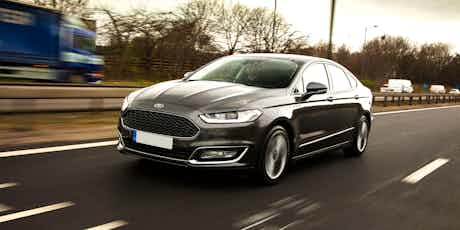What are the extra costs on a car lease?
April 29, 2022 by Ben Custard

It can be tempting to lease a car because the monthly payments are often cheaper than buying the same car on a finance deal. However, the fixed monthly repayments aren’t the only costs to think about when leasing a car – there are some potential extra costs to be aware of. Read on to see extra costs you might incur when you’re leasing a car.
Check out our other leasing guides for more information:
- Should you buy or lease your car?
- Advantages and disadvantages of leasing
- What happens at the end of your lease?
- Leasing jargon buster
- Should you lease a car through a dealer or a broker?
- Does leasing a car affect your credit score?
- Why is business leasing cheaper than personal?

Initial payment
You’ll have to pay the equivalent of a few monthly payments to kick-off your lease. This is called the initial payment and is normally the equivalent of either three, six or nine months’ payments, and it’ll be explained in your contract as something like 6+35 – meaning you’ll pay six months upfront and then pay your fixed monthly payments for the next 35 months. It’s worth bearing in mind that if you pay a lower initial payment then your monthly figure will be higher.
Administration fees
All lease deals will include an admin fee, even if it’s not specified – a car advertised as having no admin fees will have slightly higher payments to cover it. Admin fees are often around £300, which might sound like a lot, but there are a lot of forms and paperwork to complete before you can drive away in a new car.

Maintenance and servicing
Although you won’t have to pay for MOTs because the car will be less than three years old by the time you hand it back, the car will still need servicing and maintenance. You’ll either have to pay for this when the time comes for the car to be serviced, or most leasing companies will offer you a maintenance package at extra cost – either as one payment or included in your monthly payments, which will be slightly higher as a result.
Regardless, the car will be covered under the manufacturer’s warranty so if any faults occur that aren’t caused by negligence or excessive wear and tear, you won’t have to pay to get the car repaired.
Insurance
Leasing companies will stipulate that you take out fully comprehensive insurance cover, which can be more expensive than third party, fire and theft. Also, you’ll need to tell your insurance company that the leasing company is the registered owner, and you might be charged extra for gap insurance, which covers your remaining monthly payments if the car is stolen.

Fuel
While it seems obvious, fuel costs need to be paid for too, so make sure you’ve enough cash each month to keep the tank topped up.
Late payment fees
As with any financial contract, it’s vital to ensure you are able afford the terms of a car lease for the entirety of the period over which it runs. Fail to make a payment and as well as being subject to late fees you will find yourself in arrears, meaning the following month you will have two months’ worth of payments to make. Your credit rating may also be negatively affected, making it harder to take out a loan, lease or mortgage in the future.
If you think you may find lease payments hard to make, speak to your leasing company before you potentially miss a payment.

Wear and tear
A level of wear and tear is expected – leasing companies know that cars won’t come back in perfect condition – but they will expect the car to be returned in as good a condition as possible. Your broker will have given you the British Vehicle Rental and Leasing Association’s (BVRLA) guide to fair wear and tear so you know what it means and what to expect.
Repair costs
You’ll have to repair any damage to the car before you hand it back, otherwise you’ll be charged.

Excess mileage
Your lease deal will specify a maximum mileage cap – usually either 8,000 or 10,000 miles per year. If you drive too many miles in the first year, you’ll have to drive fewer the next year to balance it out, because otherwise you’ll be charged for every mile you go over the limit. This can vary from a couple of pence per mile to £1 per mile, depending on the make of car and the leasing company’s policy.
VAT
Remember to check whether the prices you’re quoted include VAT, because not all do. VAT will turn a £300-per-month car into a £360-per-month car – quite a big difference.

What are the extra costs on a PCP deal?
You’ll have to pay nearly all of these on a PCP deal, too. Not only do you have the deposit and monthly payments (although some cars can be financed with no deposit), but you’ll need to factor in admin fees, maintenance, excess mileage and damage charges, VAT and fuel. You won’t need to inform the insurers that you’re not the registered owner, which could make it slightly cheaper.
The additional charge on a PCP deal is the optional balloon payment you’ll need to pay if you want to buy your car at the end of your contract. If you don’t, simply hand the car back like you would on a lease deal.
Save money on your next car
Configure a car through carwow and you’ll receive great deals on factory-ordered cars, cars available now and leasing contracts, all in one place.















